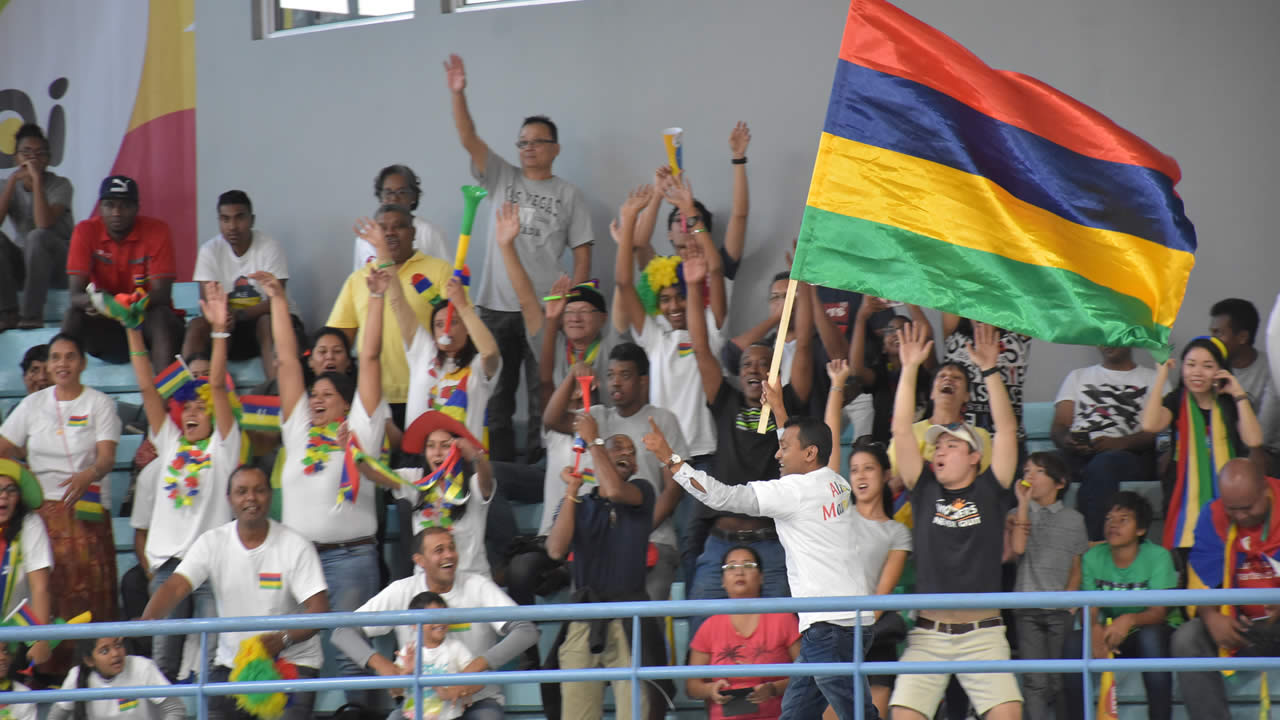
The slogan “Ale Maurice!” (Go Mauritius) is being heard in every corner of the country since the past one and a half week. As Mauritians, we have witnessed, as never before, a coming together of our citizens as one nation. Differences of any type, communal, religious, or cultural fizzled out as the Indian Ocean Island Games are still going in our island. This rising wave of patriotic feeling has increasingly fused in this country. But can this feeling be omnipresent in our daily life? Can this be reflected during upcoming electoral campaigns as well?
Red, Blue, Yellow and Green, these four colours are widespread across the country. Flags, wigs, mugs or T-shirts bearing the national flag are the most demanded items these days. There is no single day when we do not hear people cheering for Mauritius whether it is on the street, buses or social media. It is this positive form of love that allows us to appreciate both the richness of cultural diversity, and what we hold in common as human beings. Lots of people are caught up in a festive atmosphere replete with national flags, vuvuzela, trumpets and spectacles.
When athletes proudly carried the torch on its planned route across the country, the citizens, on hearing the arrival of trumpets and music left everything that they were doing at home or in office and rushed to the terraces or the main road to watch the torch being paraded by an ever smiling athlete. They stayed rooted to the spot and took it all in, as it was probably a once-in-a-lifetime event for them.
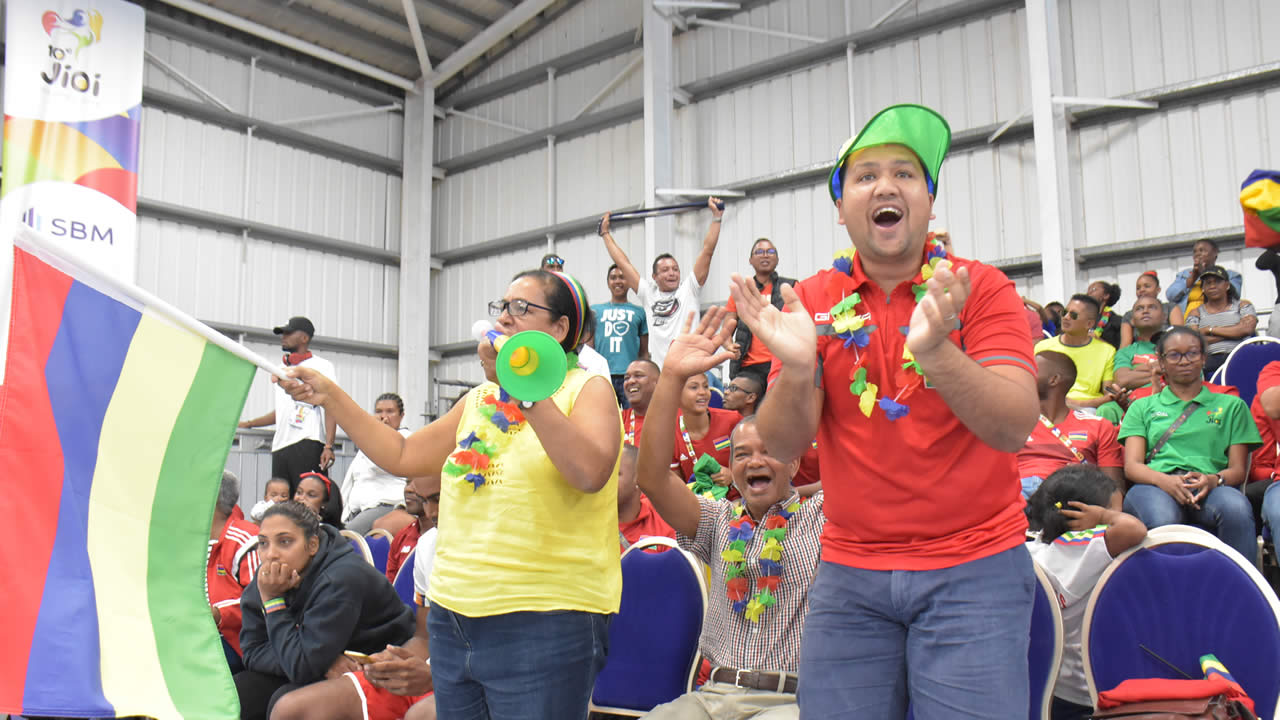
Before the arrival of the torch, our national flags became part of the landscape, in both urban and rural areas. The Mauritian flag, big or small, was proudly flaunted in cars and as for other items, the expenditures and display entailed went beyond imagination. Mauritians didn’t spare a dime to be dressed in various outfits: Both men and women were clad from head to toe with the four colours of the national flag; instead of makeup, the four colours were splattered across the faces of people; there were wigs and scarves exhibiting the sense of belonging to one nation; the usual attire – T-shirts containing also the sponsors of the Games; umbrellas reflecting the national pride, among a host of other items.
The Mauritian fervor visible during the Games were beyond belief. To begin with, tickets for all the different competitions were sold out at least one week in advance. Therefore, those who were unfortunate to secure a ticket did what the rest of the nation did: They followed the evolution of the Games on television not only at home, but also across other media outlets and we could see the packed stadiums and gymnasiums, extremely glad that this IOIG was turning out to be a success. As Mauritians, indeed, we were rooting more for our very own athletes and hoping that the country would earn most of the gold medals.
For one and a half week, the Mauritian identity, all for one and one for all, was at the forefront, with an unequalled pride in belonging to the rainbow nation. However, as the Games are nearing, a couple of relevant arguments remain: Will we witness the same fervor after 29th July, when all events that have made us so happy would come to an end and the athletes would have packed up and gone home and the stadiums and gymnasiums would have emptied? Will we still continue to bear the same patriotic identity? Or, is it that each Mauritian will go back to the shell that he or she occupied once before, such as communalism or individualism? Experts shed light on this issue.
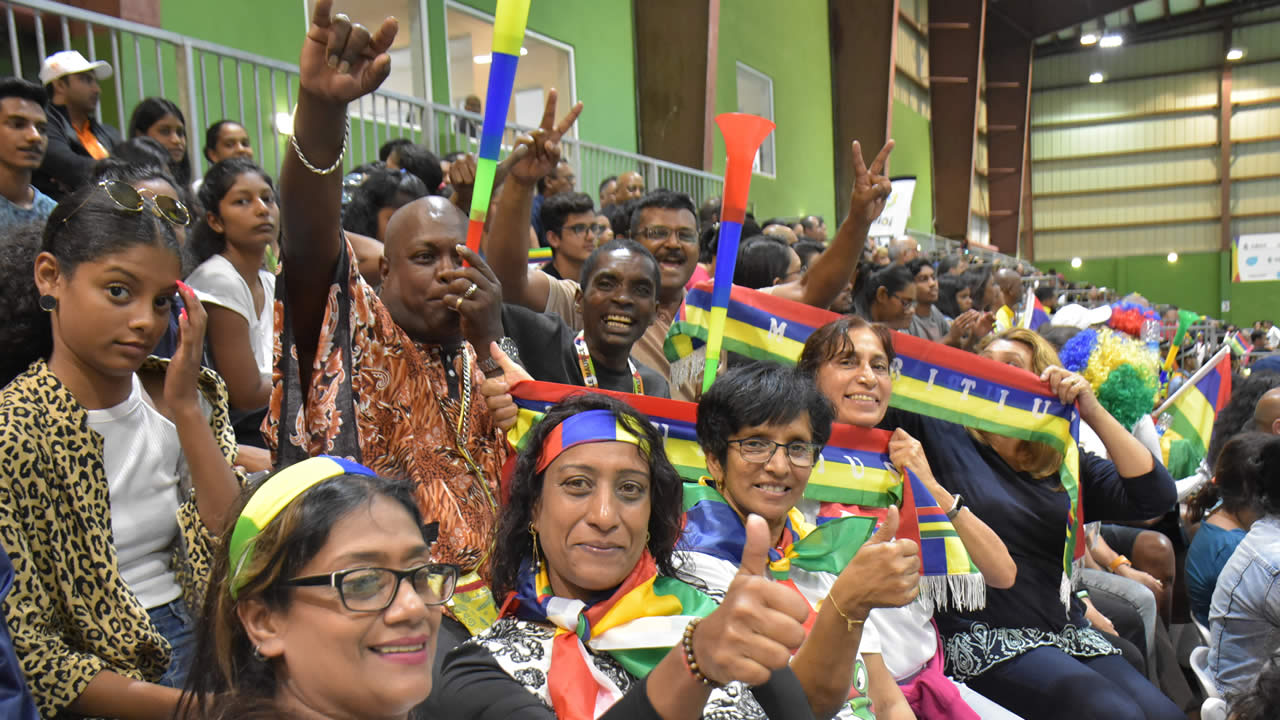
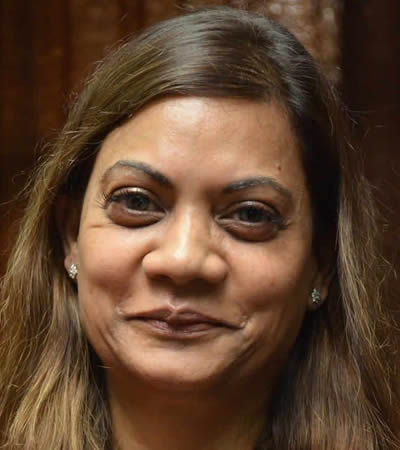 Dr Roukaya Kasenally : “A unique ability to bring people together”
Dr Roukaya Kasenally : “A unique ability to bring people together”
Senior lecturer and co-founder of Mauritius Society Renewal, Dr Roukaya Kasenally explains that it is quite a normal situation as what we refer to as the “current wave of patriotism,” which usually manifests itself during important national events and sporting events and it has a unique ability to bring people together. “In fact, this is quite sad that we only come together during specific moments and this can be explained that we live in a highly individualized society where individuals socialize more online than in real life interactions.”
She believes that what is required is that citizens understand the value and importance of voting during elections, the need for what one calls an exchange of ideas and a degree of political participation. “These features are fundamental for a working democracy. The average vote aging Mauritian, as per the last ten post-independent general elections (1976 - 2014), has gone out to vote as the country usually records a voting turnout between 85-75 percent. What we would want to see more is that the Mauritian citizenry is more engaged between the elections and that they address national issues as a population and not merely along communal or ethnic lines.”
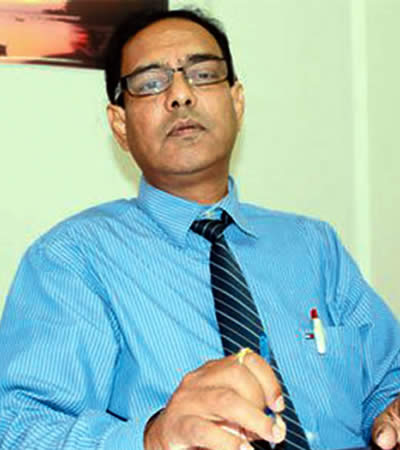 Pavi Ramhota : “A unified Mauritius can move a mountain”
Pavi Ramhota : “A unified Mauritius can move a mountain”
Sociologist Pavi Ramhota laments on the behavior of Mauritians. He states that during special events and outside the country, everyone claims to be a Mauritian but in daily life and during elections, it is not the same occurrence. “It is an unfortunate reality of Mauritius. Today, you are seeing Mauritianism but tomorrow, you will witness communalism. People do not understand that a unified population can move a mountain. For instance, during the strike of 1975, there were no community, no religion. It was a group of Mauritians fighting for a common cause. Hence, together Mauritians can fight for a cause and they will succeed as well.”
The sociologist argues that once the Games will be over, the same critics will start surfacing. “There is no doubt that politics divide our country. ‘Divide and rule’ is very well present in our country. Political parties have their own school of thoughts and this creates a lot of differences in our society. Many thoughts are imposed on our people and many of them choose to follow ideologies blindly. Favoritism and lack of meritocracy have made people so disappointed that they feel less patriotic. They want to fight for their own cause. We are more in an individualist and closed society.”
He claims that a change in mentality will not become a reality. “Being an orthodox country, communalism and individualism is deep-rooted in our culture. It will be difficult for us to expect things to change in the upcoming electoral campaigns and elections.”
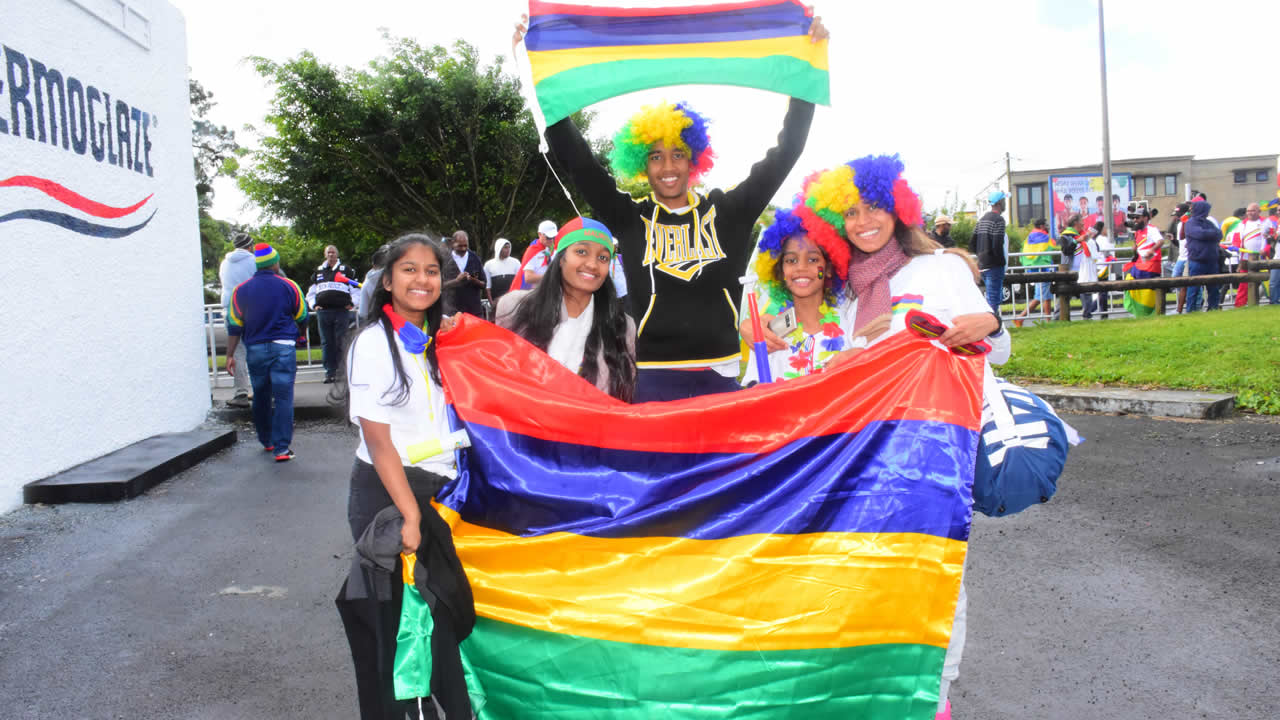
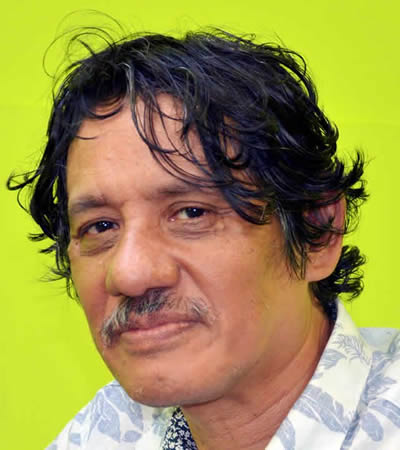 Jocelyn Chan Low : “Politics have divided the island”
Jocelyn Chan Low : “Politics have divided the island”
Historian Jocelyn Chan Low confides that seeing the surge of patriotism during the past days is extraordinary. “History has always witnessed that during sports events, the whole country is unified and then there is again a kind of division. For example, in 1985, the whole country celebrated IOIG and again in 1999 when Eric Milazer won a medal. But then, the day after, we forget our belongings and love for the country. Mauritius is a unified country but politics have divided the island.”
He states that a Mauritian will always be a Mauritian but the essence of it is lost amidst politics and communalism. “During electoral campaigns, the population is hypnotized and brainwashed. During private meetings, things are said that we cannot imagine of. These kinds of things obviously bring divisions. There is also the fact that socio-cultural factors play a different role as well.”
He avers that the population should try to live like Mauritians every day. “Stop listening to speeches that will instill hatred. Do not get into the trap of division. Even through the social media, the population should not get into debates that will promote communalism.”
The historian highlights that another change should be in our education where the young and coming generations should learn about the various achievements of Mauritius rather than just knowing about past histories and colonialism.
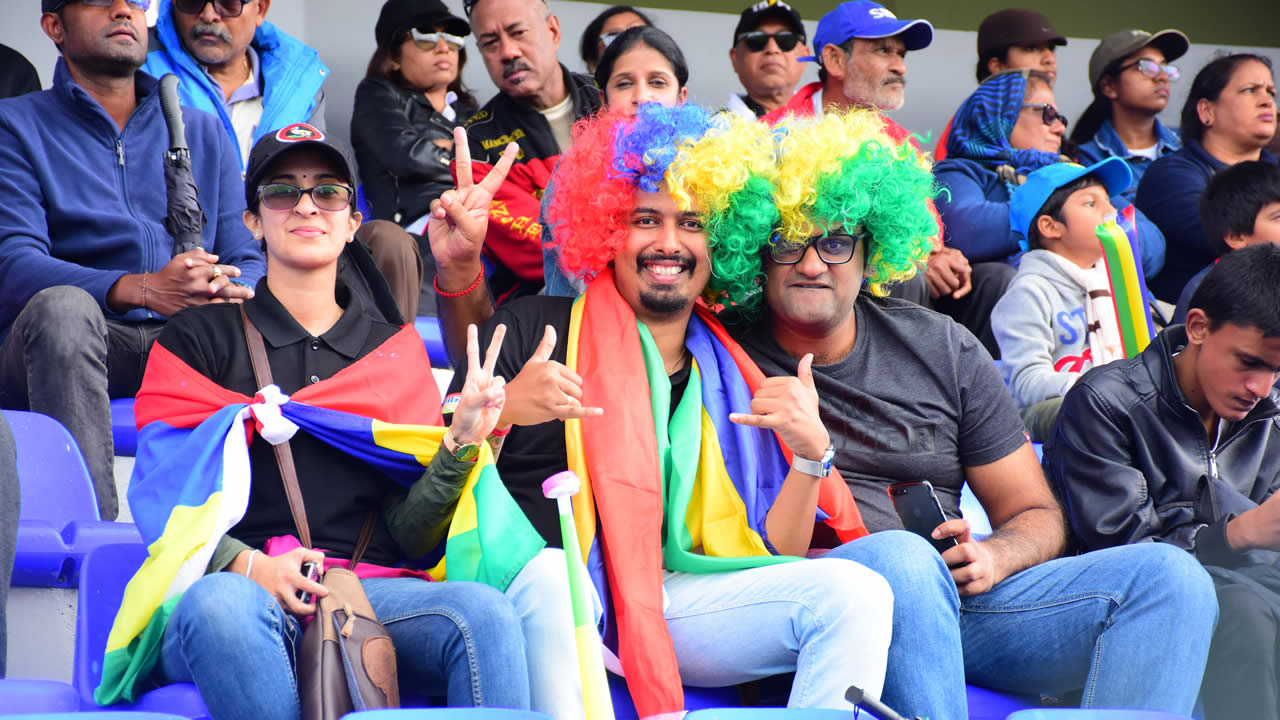
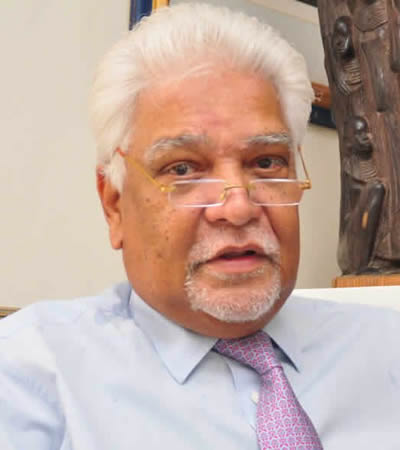 Jean-Claude de L’Estrac : “Mauritius has always been one nation”
Jean-Claude de L’Estrac : “Mauritius has always been one nation”
Former Secretary-General of the Indian Ocean Commission and political observer Jean-Claude de L’Estrac is of the view that the recent Games have shown that patriotism is deeply rooted in the Mauritian. “I am absolutely not surprised by the wave of patriotism. It is the expression of unity that exists within each Mauritian. There is only a handful of people who say that Mauritians are not patriotic. Mauritius has always been one nation. Deep inside, there is a sense of belonging and feeling of pride.”
Additionally, he explains that for the elections, things are different. “There are confrontations but it should be more a confrontation of ideas. As for communalism, it is on a downward curve. There have been lots of occasions whereby Mauritianism has surpassed communalism. There are some conflicts but they are resolved easily, as compared to other countries. Since three decades, we have been living as one country, all of us together.”
 J'aime
J'aime














